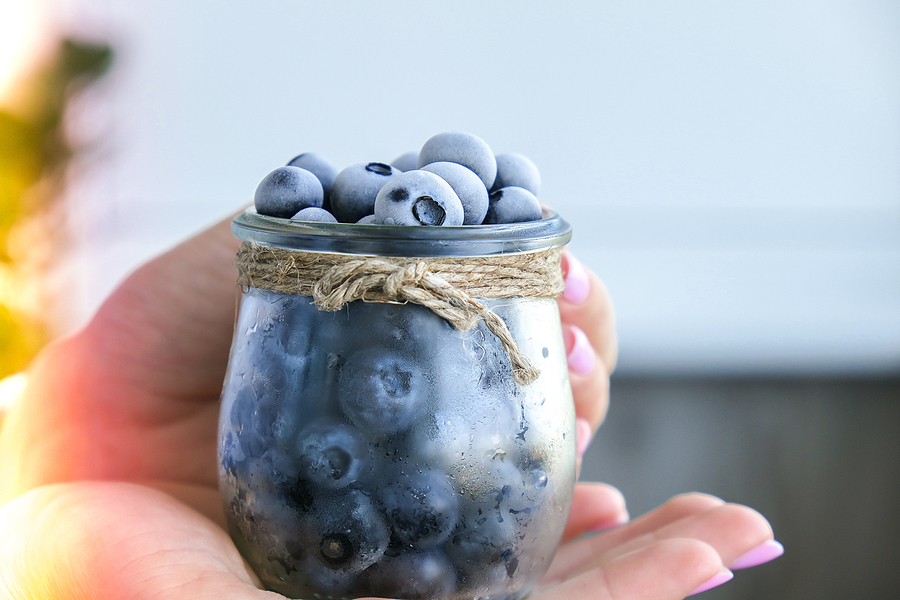Updated 09/25/2022
Janice’s story was one I’d heard countless times before.
She told me she’d been experiencing extreme fatigue, chronic pain in her joints, felt restless and anxious all of the time, and couldn’t fall asleep at night. It took at least an hour to get to sleep, she said, and it certainly wasn’t a peaceful slumber once she was asleep.
Because I’d heard this tale so many times before, and helped so many other women overcome these uncomfortable symptoms, my first questions were about food and stress. I wasn’t at all surprised when she told me she had poor eating habits and her stress was through the roof. “I run on caffeine, carbs, and adrenaline,” she said.
When I told her that combination was a recipe for disaster in the form of adrenal fatigue, her first question was “Adrenal what?”
Functional medicine practitioners have been talking about the problems that arise with high stress and elevated cortisol levels for decades. In recent years, I’ve seen more information about stress and the adrenals in women’s magazines, but conventional medicine still mostly ignores adrenal problems until they hit a full disease state.
Poor Janice looked so defeated when I explained how chronic stress can lead to big health problems. “I can’t get rid of the stress in my life. So am I just doomed?” she asked.
Thankfully, the answer is not at all!
Managing adrenal dysfunction isn’t easy, and it can take time, but there are some simple steps you can start with. There are some key nutrients that impact adrenal function, so the first step is to carefully examine your nutrition habits and see if any of these are missing.
But wait – what IS adrenal fatigue?
Let’s back up a minute. Though I have been talking about adrenal fatigue for decades, I sometimes forget that people may have just recently found my resources. The term adrenal fatigue can be confusing, especially if they’ve been told by their doctor that it simply doesn’t exist. I have plenty of articles in my health library that detail the signs, causes, and steps to take to reverse adrenal fatigue, but here’s a quick snapshot of the problem.
Some medical professionals refuse to acknowledge adrenal fatigue as a health issue – partly due to arguments around semantics. They say the adrenal glands don’t just “get tired,” and that is true. But these small but powerful glands CAN get overworked, making it hard to produce the correct amount of cortisol and other important hormones.
Adrenal insufficiency is a medical diagnosis, but it comes when the problem is so far along it’s incredibly hard to deal with. Adrenal dysfunction can be present without being in a clinical disease state. And too little cortisol isn’t the only issue – when cortisol levels are too high, major problems ensue as well (and lead to the crashing low levels later).
Cortisol is the star of this story, because when your adrenals are under pressure to produce more and more of this “stress hormone” in response to chronic stress, the other hormones made by the adrenals, including adrenaline, norepinephrine, estrogen, testosterone and DHEA, suffer.
It’s important to understand and attend to adrenal health before it’s such a problem that your body can’t keep up. And one of the best ways to support these glands is to be sure you don’t have major mineral deficiencies. If your body doesn’t have all the nutrients it needs, it can’t function as it should.
So what are these essential nutrients? Let’s take a quick look – and I’ll also give you some tips on foods you can eat to boost your internal supply of these vitamins and minerals.
Vitamins and Minerals that Boost Adrenal Function
Your body needs a wide variety of vitamins and minerals to function at its best. Even small deficiencies that fall on the low end of “normal” level readings can cause big problems for some people. We are all unique individuals, so your normal and your best friend’s normal are likely not at all the same. Even close blood relatives, like siblings, can have vastly different chemical compositions.
Several vitamins and minerals have a direct impact on adrenal function, including potassium, selenium, zinc, chromium, magnesium, and vitamins D, E, and K.
Magnesium
Having enough magnesium is crucial to proper function of the immune system, heart, energy production, muscles and bones. Magnesium also plays a role in reducing stress levels and calming your nervous system, making it incredibly important in helping your adrenal glands function properly. The standard American diet lives up to it’s acronym (SAD) and often leads to magnesium deficiency.
Signs of low magnesium include muscle spasms or cramps, high blood pressure, low energy, anxiety, and hormonal imbalances.
Green, leafy vegetables are a fantastic dietary source of magnesium. Others include pumpkin, nuts, artichoke, soybeans and other beans, tofu, whole grains and dark chocolate.
Selenium
A miniscule amount of this trace mineral makes a big difference. Selenium helps your cells fight off free-radical damage. Your body also needs it in order to manufacture and put thyroid hormones to use. Since one hormonal imbalance can quickly lead to another, selenium is important to keeping your adrenals working well.
Signs of selenium deficiency include fatigue and weakness.
Consuming milk, seafood, whole grains, eggs, poultry, seeds and nuts, especially (just a few) Brazil nuts, are all good ways to add selenium to your diet.
Zinc
Another trace mineral, zinc, has antioxidant properties, an impact on immune function, neurological functions, and growth and development. It helps your body use the macronutrients you consume (carbs, protein, healthy fats) to produce energy. It’s also necessary for healthy adrenal function. You don’t need a lot, but it’s easy to become deficient since your body doesn’t produce it naturally.
Signs of zinc deficiency include frequent illness, impaired growth, longer healing time for wounds, skeletal defects, hair loss and night blindness. At particular risk of deficiency are elderly people, those who follow a vegan diet, alcoholics, and anyone with liver or kidney disease or chronic inflammation.
To add more zinc to your diet, eat organ meats, grass fed beef, oysters, whole grains, pumpkin and sesame seeds, peas, mushrooms, spinach, sardines, and tempeh. These foods aren’t commonly found in typical American meal plans, so you should ensure that your multivitamin contains zinc as well.
Chromium
A third trace mineral, chromium, helps your cells manage glucose and insulin. It also aids your body in processing carbohydrates (which convert to glucose). High or low levels of glucose are associated with adrenal fatigue, so having enough of this mineral to regulate levels and keep blood glucose normal is vital.
Signs of chromium deficiency include high blood glucose, weakness, muscle fatigue, irritability and anxiety.
Again, diet plays a large role in developing chromium deficiency. Chromium comes from soil, so the best way to get more in your diet is to eat plenty of vegetables, fruit and whole grains, as well as grass-fed meats.
Vitamin D
Vitamin D deficiency is a widespread problem, especially for those who live in climates where there’s not a lot of sunshine. Sun exposure is crucial to the natural production of vitamin D. Consuming vitamin D through the diet is the other way to boost your levels.
Vitamin D is important in managing the effects of continuous cortisol production. In addition to leading to the most common symptoms of adrenal fatigue, excess cortisol production over a long period of time can deteriorate your bone structure, increasing risk of developing osteoporosis.
Symptoms of low levels of vitamin D include depression, fatigue, bone pain, and muscle cramps, aches, and weakness. Many people have lower than optimal levels of vitamin D without displaying any symptoms at all, so a blood test might be important in determining if this is a factor in your adrenal dysfunction.
The best way to boost vitamin D is to get outside in the sun (without sunscreen) for 15-20 minutes twice each day. There aren’t a lot of foods high in vitamin D, but fatty fish and fish oil are two great ways to add it to your diet.
Vitamin E
Your adrenals are part of the HPA axis, the communication pathways for the hypothalamus, pituitary gland and adrenal glands. Vitamin E deficiency can disrupt cortisol production, which begins a cascade of miscommunication in this axis.
Although rare in the US, some signs of vitamin E deficiency include muscle weakness, loss of body control, vision problems, and a weakened immune system.
Dietary sources of vitamin E include green vegetables, nuts and seeds.
Do I need to supplement?
Food is the best place to start when addressing nutrient deficiencies to heal from adrenal fatigue. But if the problem has been building for months – or even years – you may need a little extra help.
High-quality supplements, like my adrenal health products, can get you started on the path to healing and give you the extra energy you need to tackle other lifestyle changes, such as increased exercise, a dietary overhaul, or stress reduction strategies.
It’s always best to work with a trusted health care professional before taking supplements. Blood tests can reveal which deficiencies are a problem for you, and where you should begin. At the very least, I recommend that women take a high-quality multivitamin/mineral complex daily.
Let the healing begin
When you know the signs to look for, and understand which nutrients your adrenals need to function at their best, you can plan accordingly. You probably noticed that there’s a lot of crossover in the foods I mentioned; they are a great source of more than one of these essential nutrients. That makes the dietary shift easier to manage.
Janice started by changing up her lunch routine. No more fast food, skipping lunch, or eating out of vending machines! Instead, she prepared a big salad packed with leafy greens and a range of vegetables, topped by some nuts and seeds. This went a long way towards adding the nutrients she needed! She told me that eating this kind of lunch helped her make it through the afternoon without relying on caffeine and carbs.
She also said that creating space in her daily routine to prepare her salad helped her slow down a bit and realize how important taking care of herself is. That’s the first step in addressing stress overload!
After a few weeks, Janice began making vegetables the star of her dinner plate as well. That, along with some targeted supplements, helped her energy rise while stress declined.
After several weeks, she said her new dietary habits were easy to maintain, and she felt better than she had in months! She was sleeping better, her pain had subsided, and she had all kinds of energy to deal with the stress in her life in more productive ways. She told me she felt like a new woman! Isn’t it amazing what feeding your body properly can do for your health?







